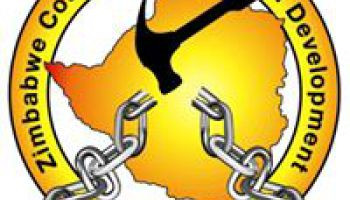
CENTRAL government is playing a major role in crippling councils in Zimbabwe through interference and inadequate resource allocations, the Zimbabwe Coalition on Debt and Development (Zimcodd) has said.
In its analysis of the Auditor-General’s report, Zimcodd commended the AG Office for its effective fiscal transparency.
It, however, added that the AG’s Office must be afforded maximum statutory independence, unlimited access to relevant information and be adequately resourced to fulfil audit functions and publicly report on the use of taxpayers’ money. Zimcodd analysed the report focusing on local authorities for the financial year ended December 31, 2022.
“Most of the local authorities had modified audit opinions (25% qualified and 67% adverse) for the audited years (2018-2022) which were mainly due to non-compliance with international public sector accounting standards and international financial reporting standards,” Zimcodd said.
“Most findings in local authorities continue to be in respect of financial mismanagement, non-compliance with international accounting standards and laws and regulations, untaxed benefits, lack of adequate controls over contract management and management of stand sales and poor service delivery.”
The analysis noted that some local authorities did not use devolution funds allocated from central government.
“For instance, Bindura Municipality received about ZWL$34,2 million. However, ZWL$7,7 million was used for salaries and ZWL$19,2 million was invested at the expense of undertaking developmental projects. Governance issues dominated audit findings as they increased from 91 issues in 2021 to 139 in 2022,” Zimcodd said.
“Governance issues have remained high in all reports submitted over the last five years. There was a sharp increase in revenue collection and debt recovery issues from 11 to 101 between 2021 and 2022 as a result of weak internal controls in revenue collection and debt recovery.”
- Sakunda hail SA stadia tour
- Rufaro Stadium refurb gathers momentum
- Huge incentives for DeMbare, Bosso
- Chiri vows to stop looting
Keep Reading
It further noted that the number of reported procurement issues increased from 11 in 2021 to 41 in 2022, indicating weakening procurement management systems and non-compliance with procurement laws and regulations by local authorities.
The Auditor-General also reported 64 issues concerning the mismanagement of assets and for instance with Kadoma City Council losing 800 bags of cement as a result of solidification and inventory and equipment worth US$33 000 to theft.
On the implications of audit findings, Zimcodd said the performance audit reports assure service delivery as they responded directly to the Bill of Rights and social rights of citizens such as access to affordable and quality healthcare, housing, clean and safe water, education, transportation and social security.
Zimcodd noted that the private sector has largely dollarised yet many households are earning in local currency which is highly volatile. The organisation, however, noted that the report findings highlighted that local governments were partly to blame for poor service delivery.
“Many of the audited local authorities are operating without key policies such as housing and human resources policies, they are grossly violating public procurement laws and regulations, lack proper segregation of duties and have weak internal controls.
“Further, the Auditor-General established that all the local authorities which submitted their financial accounts for auditing failed to comply with the requirements of international public sector, accounting standards (IPSAS).
“Failure to religiously follow IPSAS has weakened public finance management by compromising the general quality of financial reporting by public sector entities,” Zimcodd added, further noting that this affected assessments of resource allocation decisions made by public officials, thereby reducing transparency and accountability.











